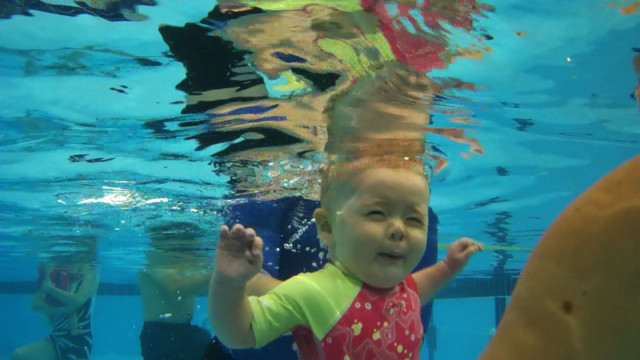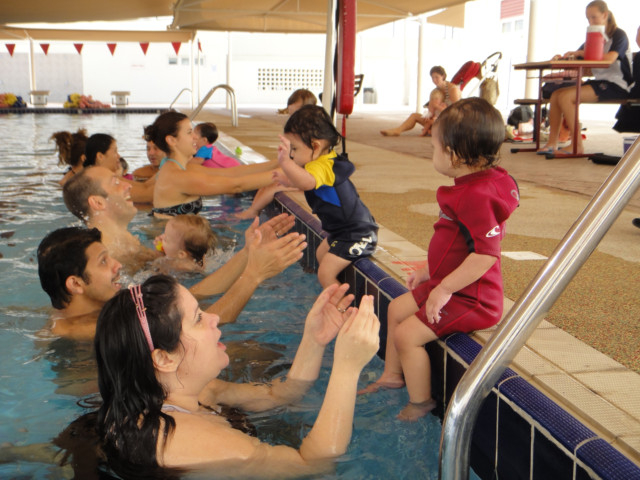
Dubai. For many toddlers, the nursery rhyme Humpty Dumpty is nothing but a song. But for a number of babies as young as four months old and toddlers at Active Sports Academy (Asa), it’s a signal to start jumping into the swimming pool on their own.
A scary sight, many parents might say. But the swimming babies’ squeals of laughter and excitement speak otherwise. Many babies just splashed into the water without hesitation, their tiny feet paddling their way back to their parents’ arms.
“We live in Dubai and a lot of people have access to pools and we’re trying to teach babies the skills to actually learn to swim at a very young age,” Louise Valk, Asa managing director and swimming coach, told Gulf News.
“We’re teaching the babies actual life skills. Hopefully they might be able to use them should they fall into a swimming pool,” she added.
Young babies tend to have natural instinct to swim because their first environment inside their mothers’ womb was also surrounded with water called the amniotic sac. But once outside, it takes actual training to get them to do it properly and safely.
A 2010 study published in the journal Child: Care Health and Development revealed that baby swimmers develop better balance and become better at grasping at things compared to non-swimmers. The study further suggests that baby swimmers have the ability to outperform their peers, which persists until they turn five.
Louise said the Water Babies course is carefully designed to help babies and toddlers enjoy being in the water. It also teaches skills like holding on to the pool’s sides, holding their breaths while under water, paddling their feet, and others.
Helen Ainsworth enrolled her one-year-old daughter, Ophelia, to the swimming classes in September because she wanted her to be safe in case she fell into the pool unsupervised.
Just two months into the course, Helen has noted Ophelia’s big improvement. “She’s much happier. In the baby pool, she can walk without a float. If she falls down, she doesn’t panic, she doesn’t swallow a lot of water, she doesn’t get upset.”
Manar Kabrawi, mother of 15-month-old Noor, is likewise impressed with her first child’s recently acquired skills.
“When I first dipped her in the water, she choked a bit because the water came inside her nose. Now I just count like 1, 2, 3, and then she will hold her breath, go under water and come out—no coughing, no choking, no water inside her nose and it’s really amazing,” Manar said.
“Swimming really made her self-confidence better. She likes to move her feet and her motor skills are better,” she added.
Most babies would just jump into the water in excitement.
“We used to have to try and force him to the edge of the water to go in at the start of the class but now he’s quite happy to go in and it’s more like you have to get in more quickly before he tries and jumps in himself,” Leigh-anne Brand, mother of Finlay, 22 months, said.
And because parents are required to be with their babies in the water, most of them told Gulf News that they get to benefit too—by having great bonding moments with their kids and developing their trust.













